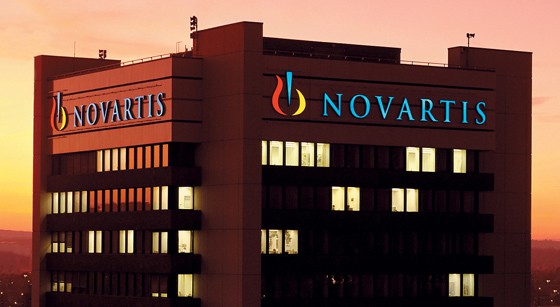
A phase III trial of Novartis’ serelaxin has met its primary target of reducing shortness of breath in acute heart failure patients, although there is some debate about the clinical significance of the results.
Serelaxin is a recombinant form of human relaxin 2 and is thought to help in heart failure by stimulating vasodilation and renal function, boosting cardiac output and decreasing systemic vascular resistance.
Top-line data from the RELAX-AHF study were reported in September, but more detailed and updated results have been presented this week at the American Heart Association (AHA) annual meeting in Los Angeles.
At the AHA, lead investigator John Teerlink of the University of San Francisco, San Francisco (UCSF) said serelaxin reduced shortness of breath (dyspnoea) on one of two measures, and also improved all-cause and cardiovascular mortality whilst appearing to reduce the progression of heart failure.
Patients also required less treatment with other drugs such as intravenous diuretics, he noted, and the time spent in the intensive therapy unit (ITU) was reduced by around a third of a day.
The study did not meet its secondary efficacy endpoints, namely number of days alive and out of hospital and cardiovascular death or re-hospitalisation due to heart or kidney failure up until day 60, said Novartis.
Overall mortality was cut by a third over the six-month study – from 11.3 per cent with placebo to 7.3 per cent with serelaxin. The level of improvement was impressive, although the researchers have acknowledged that the data comes from a relatively small trial with a low number of clinical events.
RELAX-AHF randomised 1,161 patients to intravenous serelaxin for 48 hours upon hospitalisation or placebo, both given in combination with standard therapy. Some cardiologists at AHA – including John Harold of Cedars-Sinai Medical Center – said they would like to see additional follow-up and larger trials to explore the robustness of the finding.
“This study with serelaxin is important because it may offer the prospect of a much-needed new medicine for acute heart failure, where the death rate remains high and there have been few new therapies for several decades,” said Teerlink.
Novartis said it would discuss the results with regulatory agencies with a view toward filing serelaxin for approval in 2013. Analysts have predicted peak sales of $600m-$1bn a year if the mortality benefit is confirmed.
Signifor backed
Meanwhile, Novartis’ Signifor (pasireotide) took a step closer to US approval after an FDA advisory committee voted unanimously in support of its approval for Cushing’s disease, an endocrine disorder caused by a pituitary tumour that triggers excess cortisol.
If the FDA concurs with that view, somatostatin analogue Signifor could become the first approved treatment for Cushing’s in the US. The drug was cleared for marketing in Europe earlier this year.




